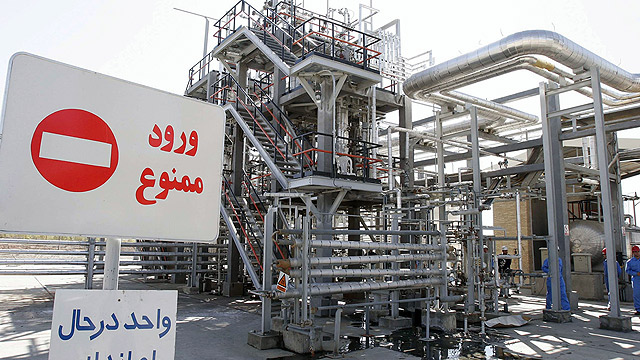Iran’s revolution at 36: To be or not to be nuclear?
Mohamed Chebarro/Al Arabiya/Friday, 10 July 2015
Whether the leaders of the international community clinch a last minute deal with Iran to limit its nuclear ambition and open its sites to international monitoring is not important anymore. It is not even important whether Iran opens all its sites to inspection or only a part of them, whether this will be for ten years, fifteen or twenty years as the international community wished at the onset of the talks. The daily noise reverberating in Vienna and the world about a breakthrough on immediate sanctions lifting is secondary, as its people and economy suffered the brunt of these sanctions for years. And it is secondary too, if those sanctions that caused so much damage and dilapidated Iran’s currency were to be lifted gradually if a deal was reached in Vienna.
Weapons and missiles sanctions
It is also not very crucial whether sanctions restricting weapons imports and/or trade are lifted immediately or those concerning missile technology. Research and development will remain an Iranian privilege that the international community will fail to curb. For decades Iran had access to weapons and technology despite the international sanctions. Despite the sanctions, Iran managed to extend its influence to the shores of the Mediterranean, and has pocketed Lebanon and Syria too, not to mention Iraq which is currently a pawn in Iran’s hand.
This is not all, Iran, under crippling international sanctions, established its credentials as the main broker in the Gaza strip and most Israeli towns became within reach of Hamas missiles reportedly supplied by Tehran. Yemen too, after Bahrain, is at the mercy of Iran’s policy.
Research and development
Research and development will remain an Iranian privilege that the international community will fail to curb regardless of a nuclear deal, its annexes or appendixes.
Up until now, there were no precedents in which the international regime of sanctions succeeded to curtail knowledge as the pursuit of knowledge is usually difficult to limit. This depends more on the good will of nations or groups to be transparent about their research and development programs.
Khamenei’s red lines
Irrelevant too are the red lines drawn by Iran’s Supreme Leader Ayatollah Ali Khamenei. He repeatedly reminded everyone inside Iran and the outside world that he bars the international verification inspector from setting foot on any military installation in his country. Those red lines seem irrelevant today, and will be irrelevant whether Iranian nuclear sites were in University laboratories or hidden in custom made caves buried under Iran’s many mountains. In approaching the closing days of what seems a decade long cat and mouse game between Iran and the international community about its nuclear program.
There are more questions that remain:
– Whether Iran has agreed at last to come out of its revolutionary tunnel.
– Whether or not the gradual lifting of sanctions will be coupled with more food on Iranian tables.
– Whether or not an inspection regime is set to ensure Tehran nuclear sites remain within their bounds, and that such inspectors’ visits do not overshadow a further clamp down on freedom of expression in the country.
– Whether or not the lifting of sanctions on military hardware accelerate the rearmament of an aggressive Iranian Revolutionary Guards rather than using the new found resources to retrain and educate the guards about how best to serve the citizens.
– Whether or not the clearance for research and development finds new ways to empower Iranians rather that further militarize an already volatile region.
– Whether or not the billions expected to flow back to Tehran coffers could find their way to Iranian pockets rather than to the pockets of insurgency leaders and insurgents such as the Quds brigade, Ansar Alla, Hezbollah and various militias Iran sponsor across the Middle East.
In the dying hour before reaching a deal, and my guess is that this deal is ready on the table, it is Iran that will make or break it if it came to terms with the above question.
Therefore, it is no longer important how many centrifuges Iran is likely to keep, but how ready Tehran is to cooperate as a responsible state actor on the world stage and start with a clean slate its rehabilitation process.
Regardless of the way Iran is likely to sell the deal domestically or internationally, its likely to pursue one of two clear paths, one that gradually undos the revolution that was born in 1979. The second is for the Iranian leadership to accept the deal today but empty its framework and clauses gradually so that a duplicitous game is played with the international community and the institutions guarding such deal. In opting for the second, Iran could be opting for a long term fate similar to that of North Korea, it is definitely proud nation, but a state where citizens sleep hungry.






















